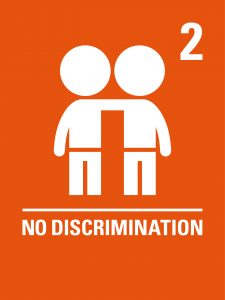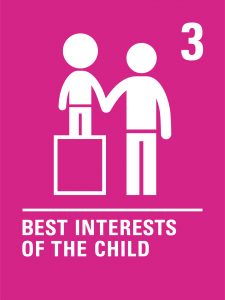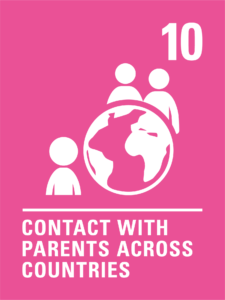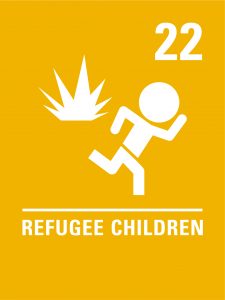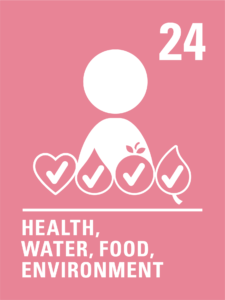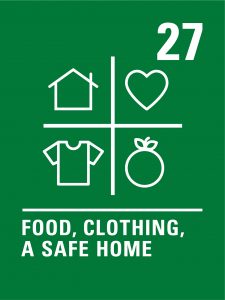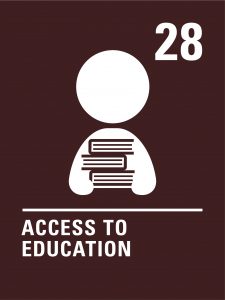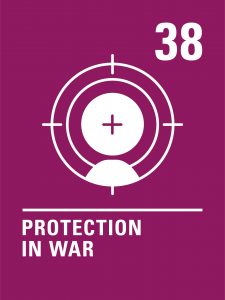Migration & Xenophobia
Migration & the rise of Xenophobia – In today’s political climate, where far-right ideas and anti-immigrant feelings are on the rise, it’s important to address the fundamental global principle of the right to a home especially for children escaping war, persecution, and displacement. Beyond legal obligations, ensuring a safe home is a moral duty, and understanding this principle is crucial in preventing vulnerable children from being scapegoated for systemic policy and planning failures. This exploration equips us with the knowledge and empathy needed to advocate for the rights of these children in the face of complex global challenges and shifting political dynamics.
By the end of these activities, participants will have a better understanding of children’s fundamental right to a safe and home, particularly concerning children escaping war, persecution, and displacement. They will also acquire strategies to address anti-immigrant attitudes and effectively advocate for the rights of displaced children despite political obstacles.
Workshop Activities
| Activity 1 | The Journey of Asylum | 5 Mins |
| Activity 2 | Kahoot Quiz on Migration and Xenophobia | 10 Mins |
| Activity 3 | Voices of Resilience: Ukrainian Refugee Realities | 25 Mins |
| Activity 4 | Changing the Narrative | 40 Mins |
Resources
Why is this an Election issue?
- Young people should get involved in discussing immigration during the upcoming election, because it affects our society in many ways. Recent events around the country, like the Dublin riots or the arson attacks at proposed accommodation centres, show how important it is to educate ourselves and address issues related to immigration.
- Understanding Global Movement: It’s crucial for us to know that throughout history, people have moved around the world for different reasons. Ireland’s own history of people coming and going adds to the global story of movement, helping us see how societies are connected.
- Media and Politics Influence: The way we think about immigration is often shaped by what politicians and the media say. As young people, we need to critically think about these messages, figuring out what’s true and what’s not, to understand how immigration affects our society.
- Rising Xenophobia and Discrimination: A poll from 2020 showed that more people are becoming less accepting of migrants, linked to an increase in xenophobia. This is worrying. Young people can play a big role in standing up against discrimination, promoting inclusivity, and shaping a more open-minded society.
- Impact on Children on the Move: Children on the Move and their families can face challenges in accessing important services as they transition from one place to another, often fleeing violence and persecution. Sometimes the journey itself can be treacherous. Often, when Children on the Move and their families arrive at their destination, they don’t have the power to advocate for themselves, meaning that those of us who can must speak up for the rights and well-being of these vulnerable groups.
- Open Conversations and Fair Policies: By actively participating in conversations about immigration, young people can help remove barriers to understanding and address the root causes of discrimination. We can advocate for fair policies that make sure everyone is treated equally, contributing to building a more inclusive and friendly society.
- Security Concerns: The atmosphere of rising xenophobia can create an unsafe environment for children and young people, particularly those from immigrant backgrounds. Hate crimes and violent attacks, as seen in the recent events, jeopardize the security, physical and mental health of these young people, infringing upon their right to live free from violence and discrimination.
Why is this a Child Rights issue?
- Family Separation and Reunification: Immigration policies may lead to family separation, where children are separated from their parents or caregivers during migration processes. The right to family unity is a fundamental child right, and separation can have detrimental effects on a child’s emotional and psychological well-being.
- Access to Education: Immigrant children may face challenges in accessing quality education due to various barriers, such as language barriers, lack of appropriate support, or discrimination. The right to education is a fundamental child right, and immigration-related factors should not hinder a child’s access to learning opportunities.
- Healthcare and Well-being: Immigrant children may encounter obstacles in accessing healthcare services, including preventive care and mental health support. Adequate healthcare is a crucial component of children’s rights to survival and development.
- Protection from Discrimination: Immigrant children, especially those from marginalized or minority backgrounds, may be vulnerable to discrimination or xenophobia. Protecting children from discrimination is a core child rights principle, ensuring that all children, regardless of their immigration status, are treated fairly and equitably.
- Asylum and Refugee Rights: Children seeking asylum or refugee status may face unique challenges in the immigration process. The right to seek asylum and the protection of refugee children are essential aspects of international child rights frameworks.
- Freedom from Violence and Exploitation: Immigration can expose children to risks of violence, exploitation, or trafficking. Protecting children from all forms of violence and ensuring their safety is a fundamental child right.
- Right to Nationality: Some immigrant children may face challenges in obtaining legal recognition and nationality. The right to a nationality is an integral aspect of child rights, ensuring that every child has a legal identity.
Activity 1 – The Journey of Asylum
Duration: 5 Mins
Introduction
- Watch video
- Ask participants to visualize or brainstorm scenarios that would force them to leave everything behind, emphasising the dire and complex situations refugees may face.
- Discuss the emotional and practical challenges involved in seeking a new home.
- Below is an example scenario that can be read out to the group.
Please Note: Be mindful of participants who might have had experience of displacement or forced migration, for further information download our guidance
In a small village nestled between rolling hills, there lived a family – the Alis. The village, once harmonious and peaceful, had recently fallen victim to a violent conflict fuelled by political unrest. The Alis, like many others, found themselves caught in the crossfire.
As tension escalated, the Alis faced daily challenges: the distant echoes of gunfire, dwindling food supplies, and the constant fear of danger knocking on their door. The children, once carefree, now huddled together at the sound of explosions.
One fateful day, the Alis received a threatening message. It was a stark warning that their lives were at immediate risk. Realizing they had no choice but to flee, the family hastily gathered a few belongings and embarked on a perilous journey.
Their journey began with a night of stealthy escape through darkened alleyways, guided only by a dim moonlight. Fearful whispers echoed through their group as they navigated unfamiliar paths, each step taken with the weight of uncertainty.
Crossing borders brought new challenges – checkpoints manned by armed guards, questioning glances, and the constant fear of being discovered as they sought refuge in neighboring countries. The Alis faced exhaustion, hunger, and the harsh elements as they moved through vast landscapes, their eyes reflecting a mix of desperation and hope.
Throughout the journey, they encountered fellow refugees, each with their own tales of anguish and loss. Families displaced, dreams shattered, and lives forever changed by the turmoil that forced them to flee their homes.
The Alis’ journey, fraught with danger, emphasized the stark reality that people become refugees not by choice but out of sheer necessity. The causes of fleeing as a refugee, rooted in conflict and persecution, force individuals and families to leave behind everything they once knew, risking their lives for the chance of safety and a new beginning.
Activity 2 – Kahoot Quiz on Migration and Xenophobia
Duration: 10 Mins
Activity 3 – Voices of Resilience: Ukrainian Refugee Realities
Duration: 25 Mins
- Divide participants in to groups, assign one video for each group. If needed more can be found on UNICEF’s YouTube channel. Distribute the Child Rights Impact Assessment Handout and the Key Messages Handout.
- Watch the real-life videos featuring refugees, providing a glimpse into the experiences of displaced individuals.
- Ask participants to conduct a child rights impact assessment using the handout, consider the implications of not having a safe place to call home.
- Upon completion, ask participants complete the second handout creating Key Messages for politicians based on the Child Rights Impact Assessment.
Activity 4 – Changing the Narrative
Duration: 40 Mins
The purpose of this activity is to critically examine, deconstruct and challenge common xenophobic tropes associated with refugees and promote a more informed and empathetic perspective.
Begin with a brief discussion on what xenophobia is and its impact on individuals and communities. See below examples of xenophobia across Europe.
Examples across Europe:
Hate crimes: Targeting of specific ethnic or religious groups has been reported in several European countries. These crimes may range from graffiti and vandalism to more severe acts of violence. In Ireland there were riots, street violence, burning vehicles, broken windows and racist and xenophobic slogans in the centre of Dublin, after a random attack on children.
Online xenophobia: Hate speech, discriminatory comments, and misinformation targeting certain groups have become prevalent in online platforms. Anti-immigrant and anti-refugee discourses revolve mainly housing; moral deservedness; and the good versus bad immigrant trope. Anti-Muslim discourses have mobilised four tropes: terrorism; sexually deviant; and a general and unspecified antipathy.
Nationalist Movements: Throughout Europe, the vilification of migrants has played a role in the rise of several far-right populist parties, exemplified by Italian Prime Minister Giorgia Meloni, or Dutch politician Geert Wilders’ movement. These movements frequently capitalize on economic anxieties, cultural distinctions, or concerns about the erosion of national identity to garner support. In Ireland, there is a growing influence of the far-right, which includes religious fundamentalists, nationalists, and various other groups. However, the movement has recently unified around a common focus: immigration.
Violent Attacks: In various European countries, there have been instances of violent attacks against individuals perceived as immigrants. These attacks may include physical violence, property damage, or verbal abuse. Recently in Ireland people have blockaded centres they believe will house refugees, some centres have even been burned down to prevent their use.
Group Work
- Divide participants in to smaller groups
- Distribute handouts listing common xenophobic tropes related to refugees.
- Participants discuss and identify instances where they may have encountered or heard these tropes.
- Assign each group a specific xenophobic trope to deconstruct.
- Ask groups to research and gather information that counters the negative stereotype they’ve been assigned.
- Encourage them to find real-life stories, statistics, or expert opinions that challenge the trope.
- Groups prepare a short presentation (5-7 minutes) debunking the xenophobic tropes.
- Discuss as a wider group. Emphasize the importance of using facts, personal stories, and other compelling evidence to challenge stereotypes.
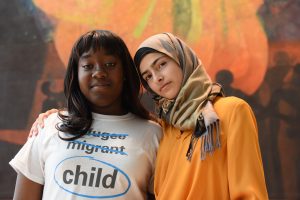
This activity can help your school achieve a Global Passport Award. Learn more or apply at WWGS’s Global Passport Award.
Funded by Irish Aid’s WorldWise Global Schools – contents are the responsibility of its author and do not necessarily represent or reflect WWGS and or Irish Aid policy.
